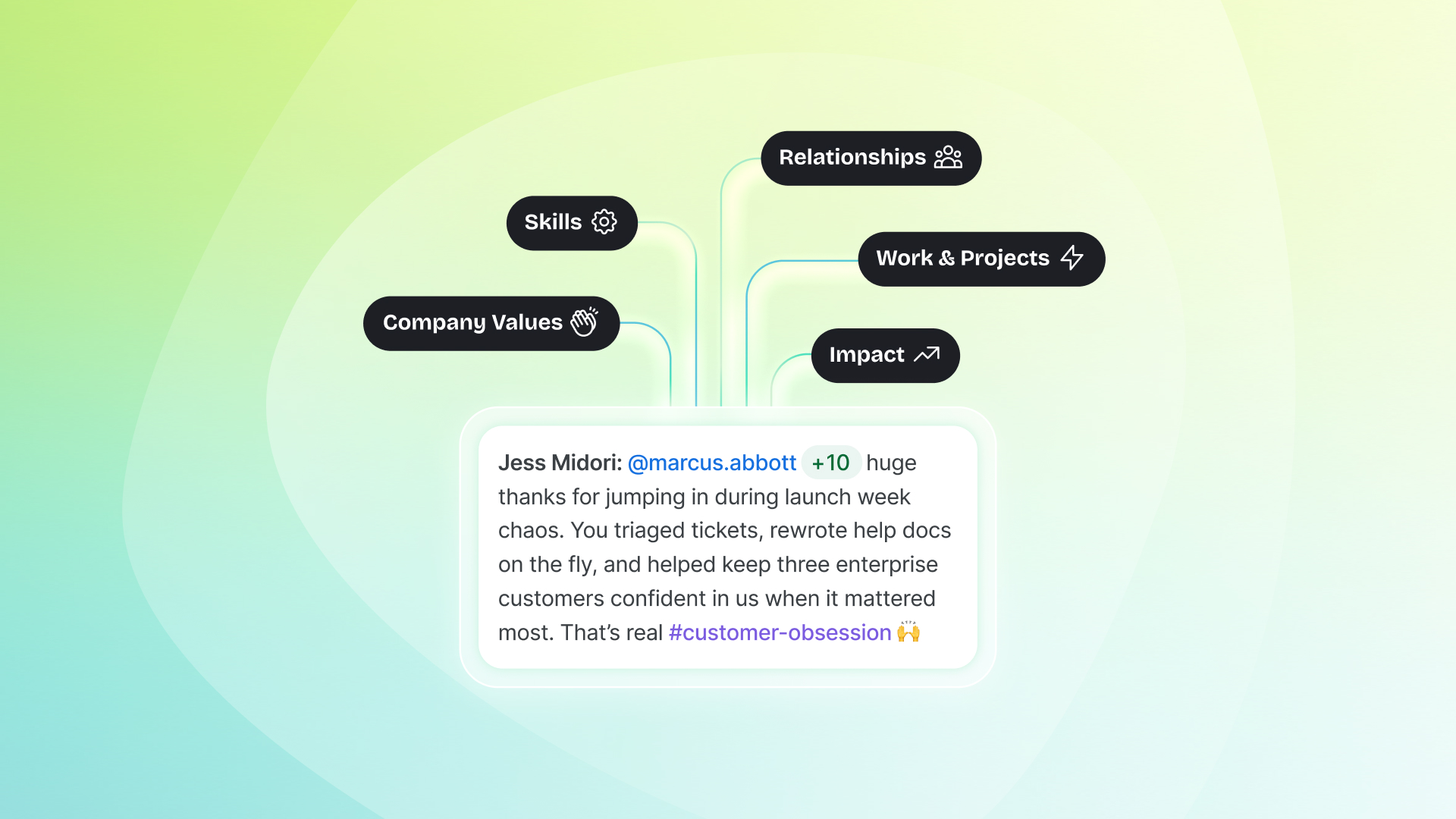6 Transformative Benefits of Respect in the Workplace

Do you feel respected at work?
Greeting people on the street, in the store, at the gym, or even in the workplace can seem like such a chore for some people. But what many forget is that saying “good morning” isn’t just being polite. By saying “good morning,” one person is showing respect for another person, not just by greeting them, but by simply acknowledging that they exist.
In the workplace, over half of employees claim that they don’t regularly get respect from their leaders. This is especially notable since employees also report that being treated with respect by leaders is more important than any other leader behavior.
Respectful behaviors aren’t limited to upper management and therein lies their potential. Anyone at any level in the organization can, and should, show respect for others.
Anyone at any level in the organization can, and should, show respect for others. The business potential is huge.
Whether you're actively listening to a colleague or cleaning up after yourself in the office kitchen, showing respect for others in the workplace provides at least six transformative benefits. Let’s take a look.
--> Want more? Check out The Complete Manager's Guide to Employee Recognition
Why respect at work matters
1. Respect contributes to job satisfaction

In respectful workplaces, employees are more engaged and productive. In workplaces with little or no respect, employees report more conflicts and misunderstandings and lower attendance and productivity.
Respectful behaviors can lift spirits and shine light on someone's otherwise cloudy day. Treating someone with respect can instill confidence in them and offer them much-needed encouragement.
According to a survey conducted by the Society for Human Resources Management (SHRM), respectful treatment of all employees at all levels was rated as “very important” by 72% of employees surveyed, making it the top contributor to overall employee job satisfaction.
The businesses that perform better in regards to increased productivity and job satisfaction had developed effective communication practices that included respect for of each employee’s work as well as their opinions and ideas.
2. Respect increases employee engagement
Complete employee engagement is a target all businesses would love to reach. But a recent Gallup study of over 350,000 American employees revealed that only 30% were engaged with their work. In addition to some common strategies for inspiring disengaged employees, one of the simplest strategies is to show respect for team members.
Respect is a powerful force. In a survey of more than 20,000 employees, Harvard Business Review found that respect was the number one behavior, above all others, that would lead to greater employee engagement and commitment.
Employees reported that respect from their leaders had a more significant positive impact than useful feedback, recognition, sharing the company vision, or even opportunities for personal and career development.
When employees receive respect from other team members, they are less stressed and more apt to apply themselves diligently to their work. The same is true when an employee knows that their superiors and business leaders respect them and their work.
Whether it is being granted the freedom to make mistakes on a particular project, taking an extra step to include a remote coworker, or removing restricting rules related to a company travel policy, anything that signals a sense of trust is showing respect for the employee and increasing engagement.
3. Respect creates a fair environment

When coworkers show respect toward one another in the workplace, a sense of fairness is established and the incidence of hazing, harassment, and horseplay is practically eliminated.
When a manager respects his or her employees, there is no room for harassment, favoritism, or bullying. In a respectful environment, relationship building and strengthening can be better understood as the foundation of quality work.
--> Want more? Check out The Complete Manager's Guide to Employee Recognition
4. Respect is a stress reducer
A respected employee no longer has reason to fear being stepped on or stepped over.
She doesn’t have the stress experienced by employees who don’t receive the same respect. When another person has your respect, they have freedom—freedom to perform without the worry of being the subject of gossip and ridicule.
The respected person is also free to be themselves and to live and work within their own skin without the stress of feeling they have to please everyone around them. They no longer have the stress of trying to be someone they are not.
5. Respect improves knowledge sharing

A group of respected employees automatically begin to share ideas with each other in an effort to build relationships. As a byproduct, knowledge is shared and exchanged as mutual respect grows.
With a frictionless transfer of information and knowledge comes individual growth, as well as increased team productivity.
6. Respect boosts the bottom line
If respect increases employee engagement, creates a fair environment, reduces stress, and improves knowledge sharing, then it must improve the company’s bottom line.
With respect in the workplace, the workplace becomes a blessing, not a burden. Respect replaces jealousy with joy, backstabbing with pats on the back, and harassment with high fives.
The workplace becomes a fun place to make things happen. Managers and supervisors no longer micromanage, but become encouragers of people they respect. Employees stop dodging assignments because they respect the business leader’s decisions and implement tasks with delight.
If this sounds like a fantasy land, research how Zappos, VMware, Google, David Weekly Homes, and Stryker emphasize respect in the workplace and check out their profits!
--> Want more? Check out The Complete Manager's Guide to Employee Recognition
How to show respect at work

In his classic book from the late 1980s, All I Really Need To Know I Learned In Kindergarten, Robert Fulghum shares his credo from what he learned in the sandbox at school:
- Share everything
- Play fair
- Don’t hit people
- Put things back where you found them
- Clean up your own mess
- Don’t take things that aren’t yours
- Say you’re sorry when you hurt somebody
- Wash your hands before you eat
- Flush
While Fulghum’s credo is simplistic in form, showing respect for one another is really not all that complicated. Most of us learned the value of demonstrating respect at an early age. As Fulghum puts it, respect is fundamental to everything we learned in elementary school: “The Golden Rule and love and basic sanitation. Ecology and politics and equality and sane living.”
For employees, employers, and managers, the rules of respect are the same. Forbes contributor Lisa Quast lists tips for employers to use to gain respect, including being authentic, developing potential, and sacrificing when necessary.
Quast writes, “respect is something you have to earn—it’s not something handed out free on a silver platter.” Respecting one another requires that we sacrifice our prejudices, pride, inflated egos, and self-centeredness.
Be in control of our words and actions
One good way to tame our tongue is to practice not using it—in other words, to listen and listen more intently.
In his book Listening Pays, Rick Bomelje suggests that the next time you are in a conversation, you repeat, in your mind, every word the other person says. It takes a while to perfect, but it is worth the effort.
Bomelje’s technique provides two major benefits. When you are repeating a speaker’s every other word in your mind, they will see you intently listening and showing respect for them.
This technique also forces you to really focus on what the speaker is saying so you can’t think about what you are going to say next instead of listening and being in the moment, as most of us do all too often. You are being respectful of the speaker, and he or she will respect you for that.
Empathize with others

Empathy is distinct from sympathy, which is the ability to support others with compassion. Empathy is the ability to experience and relate to the thoughts, emotions, or experience of others. Empathy is the ability to step into someone else’s shoes, be aware of their feelings, and understand their needs.
When you empathize with another person’s experience, you are better able to show respect toward that person. As Brené Brown has said, "empathy fuels connection." (If you have a minute, watch this animated video illustrating her point.)
In a nutshell, do unto others as you would have them do to you. The very basics of greeting one another, cleaning up your own mess, pitching in to help when another needs it, giving each other space, and simply being kind is showing respect. So is listening, encouraging, assisting, comforting, and caring.
What respectful workplaces we could have if we all embraced the core of Fulghum’s sandbox credo:
- Warm cookies and cold milk are good for you
- Live a balanced life—learn some, think some, and draw and paint and sing and dance and play some
- Take a nap every afternoon
- When you go out into the world, watch out for traffic, hold hands, and stick together
--> If you're ready to take the next step toward building a stronger organizational culture, check out our latest guide:








